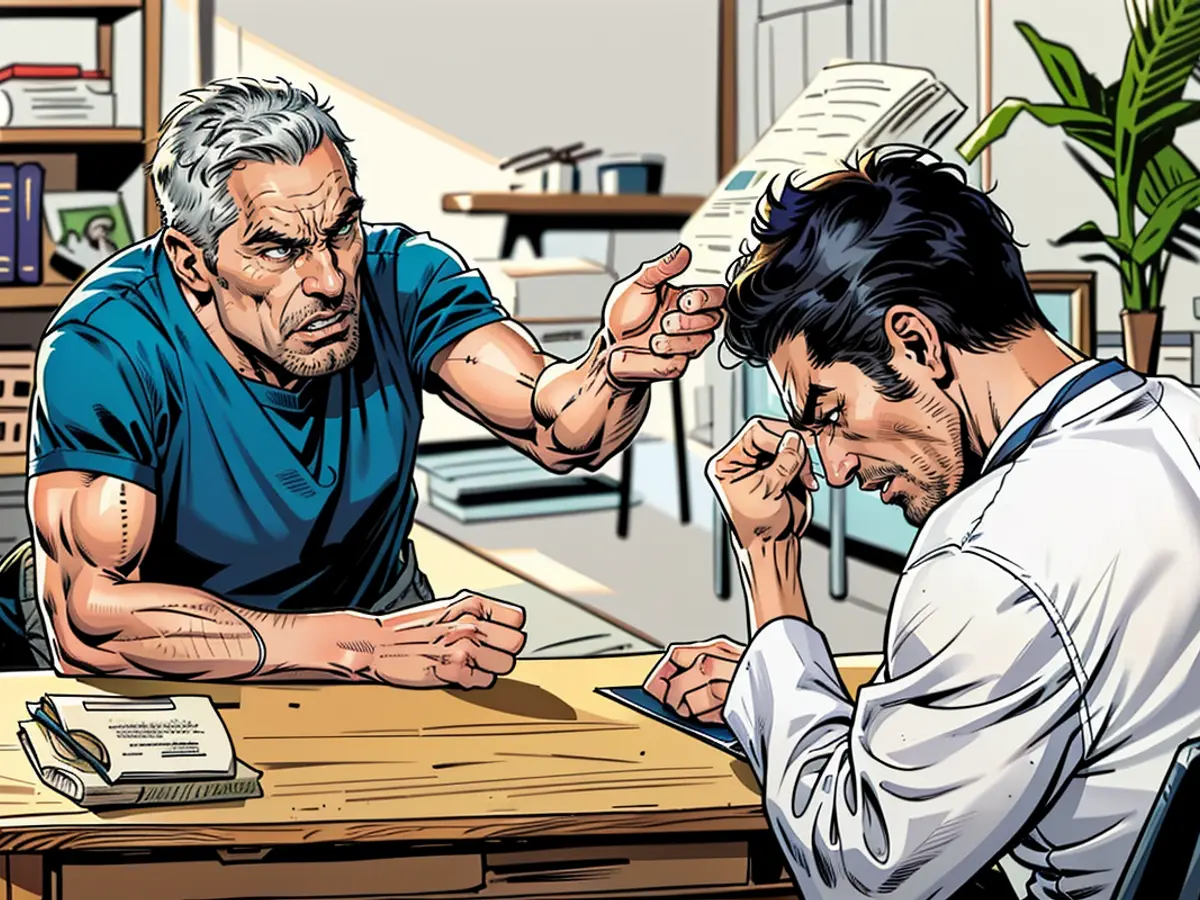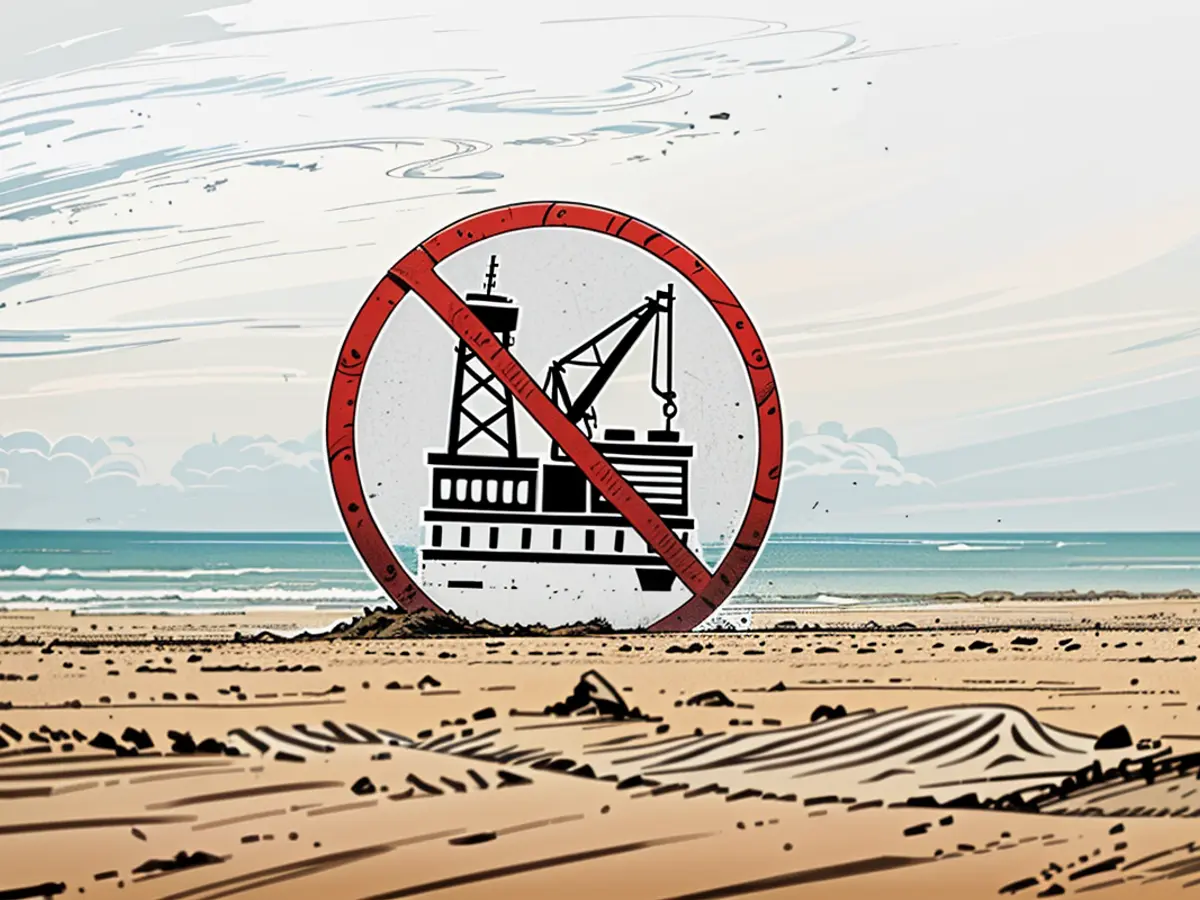- "I'll kill you" <unk> how doctors and their staff experience violence in practice
Dr. Wolfgang Kreischer's practice is located in the bourgeois Berlin-Zehlendorf, his patients, says the family doctor, are rather "calm and stable". If there is stress, it usually comes from people in particularly difficult social circumstances. Kreischer treats drug addicts with substitute drugs. "Recently, a young Ukrainian wanted to be substituted," says Kreischer. "But it's not that simple, the therapy has to be reported and approved. When I told him I couldn't treat him, he threatened to cut his throat and infect us all, saying he had tuberculosis." Kreischer and his team called the police. Fortunately, such situations are rare, says Kreischer, who was chairman of the Berlin/Brandenburg family doctors' association for 14 years.
Andreas Gassen, head of the Association of Statutory Health Insurance Physicians, recently complained in an interview about the increased potential for violence in German medical practices. He himself has experienced a patient kicking in his door. Exact numbers are not available. Attacks on medical staff are not specifically recorded in the crime statistics. The Association of Statutory Health Insurance Physicians in Bremen asked its members between May and July 2024 if they had experienced violence. And received shocking emails.
Dr. Volker Braun, a urologist, writes: "A patient, in his late 50s, a former bodybuilder and boxer, appeared with his wife in the practice. The patient had already been there years ago (at the time in a wheelchair) and had loudly complained that I couldn't prescribe him potency pills on a statutory health insurance prescription. We asked the woman to wait outside the practice rooms, but she could be present during the examination. When I came into the examination room, (...) the patient aggressively forbade me to speak to his wife, saying he would decide how things would go here. When I told him he couldn't dictate to me in my own practice, his 'speech' escalated. I told him I wouldn't treat him further and asked him to leave the practice and left the examination room."
Dr. Braun continues: "Suddenly, the supposedly mobility-impaired patient (without his walking frame) stormed after me and stood in front of me with raised and clenched fists. I asked him to back off and leave the practice immediately. Only when I threatened to call the police, (...) did he back off and said loudly: 'I have friends in the Russian mafia, they'll burn down your practice'. Before the police arrived, the patient left the practice swearing. I filed a police report."
Dr. Annegret Kröhn-Wellhausen reports: "A father appeared with his feverish child in the practice, demanding service and an antibiotic that I hadn't prescribed two days earlier because it was obviously a viral infection. He demanded to be treated by my colleague. When I then entered the room to examine the child - and told him he couldn't choose if he appeared without an appointment - he protested loudly, approached me and pushed me away. (...) Funny side effect: The policeman I called then explained to me that if it didn't hurt, it wasn't a crime. He experienced worse in his service."
Another doctor, who wishes to remain anonymous, recounts how a mother came in with an elderly lady, presumably the grandmother, and a one-year-old child for an examination. "The child looked 'fit'. It turned out that the mother was uninsured. She agreed to pay privately but then said she didn't have any money. I asked the mother to return when she had a card or cash - it wasn't an emergency. The mother flew into a rage, threatened me saying, "I will kill you," spat at me, and pinched me, leaving bruises. My practice staff witnessed the incident and together we escorted the attacker out. I called the police. When the officers arrived, the mother was still outside the practice. The woman was then given a 'threat warning' by the police. As a doctor, I've rarely encountered violent individuals, but my medical practice assistants (MPAs) and other doctors in the practice have frequently."
Doctors complain about increased selfishness and lack of respect from patients
Since the COVID-19 pandemic, many doctors report an increase in selfishness, disrespect, and aggression. Societal polarization has also reached practices, with anti-vaxxers and COVID deniers harassing and threatening medical professionals, while others rudely pushed to the front to get vaccinated as quickly as possible. Empathy also seems to be lacking. "There were situations where we had an emergency in the practice and had to perform procedures on a patient on the floor. Someone else actually pushed their way in and demanded that we write them a prescription," says Regina Mayer-Berger, a family doctor from Kaiserslautern, in an interview with the "Southwest Press".
The approximately 340,000 medical and 200,000 dental assistants are particularly exposed to the growing tensions. Once known as "medical assistants," 99% of them are women. They have no influence on the decisions made by politicians in Berlin, such as when the budget for treating periodontitis is cut, but they are at the forefront when frustrated patients lose their temper. "The shortage in the healthcare system is a reason for the increasing aggression in practices," says Hannelore König, head of the Association of Medical Professions.
She criticizes that Chancellor Olaf Scholz and Health Minister Karl Lauterbach gave the impression that there would be no cuts to services. "In fact, however, only a 'sufficient' supply is legally guaranteed," says König. Patients feel the contradiction between good and sufficient care, and the threshold for venting their anger at the MPAs is low. In a 2023 survey by the association, more than 30% of MPAs reported experiencing violence frequently or multiple times. This includes physical violence such as hitting, kicking, pushing, or biting, verbal violence such as threats, insults, or shouting, and sexual harassment.
Julia Schierenbeck, a doctor from Bremerhaven, writes: "There are days when our medical practice assistants (MFAs) are afraid to go to work because they fear getting into verbal altercations again. I too increasingly feel like I'm just a wish fulfillment machine, and if that wish isn't fulfilled, I too am personally insulted. I also have the impression that respect for women, whether they're doctors or MFAs, is diminishing. I'm in a shared practice with my husband, and he is hardly ever insulted, and his competence is never questioned. We've already had to ban several patients from the practice this year and refer them to another practice."
Criticism of Justice Minister Marco Buschmann
Koenig demands that the problem be tackled systematically. Through better education, preventive measures like de-escalation training, self-defense, and consistently reporting cases to the professional associations. But also through stronger legal protection. Federal Justice Minister Marco Buschmann (FDP) has already submitted a bill for rescue workers and police officers to protect these professions from insults, harassment, and attacks. However, doctors, psychotherapists, and MFAs are excluded.
The heads of the Bremen Association of Statutory Health Insurance Physicians, Bernhard Rochell and Peter Kurt Josenhans, criticize this: "We are astonished that practices are not considered in the planned tightening of the Criminal Code. We urge Federal Justice Minister Marco Buschmann to explicitly include doctors, psychotherapists, and their employees in the bill and to grant them legal protection in the exercise of their profession."
As we know, the wheels of politics grind slowly. In the meantime, Dr. Regina Mayer-Berger has taken the initiative herself. On her website, she writes: "In light of recent events, I would like to ask that my employees be treated with courtesy and respect. Those who cannot or will not adhere to the rules of social conduct will be excluded from the practice within the framework of the house rules."
In response to the increasing incidents of violence and disrespect towards medical professionals, Dr. Regina Mayer-Berger, a family doctor from Kaiserslautern, has taken the initiative to request courteous and respectful behavior from her patients, as stated in her online post. Additionally, the heads of the Bremen Association of Statutory Health Insurance Physicians have expressed their concern about the exclusion of doctors, psychotherapists, and their employees in the proposed bill by Federal Justice Minister Marco Buschmann to protect rescue workers and police officers from insults, harassment, and attacks. They urge Buschmann to include these professions in the bill and provide them with legal protection.
Another doctor, who wishes to remain anonymous, highlighted a case where a patient, who was uninsured and had no means of payment, threatened and physically assaulted them in their practice, causing visible bruises. This incident underscores the growing tensions and aggression faced by medical professionals, particularly female medical practice assistants (MPAs), who often bear the brunt of frustrated patients.








